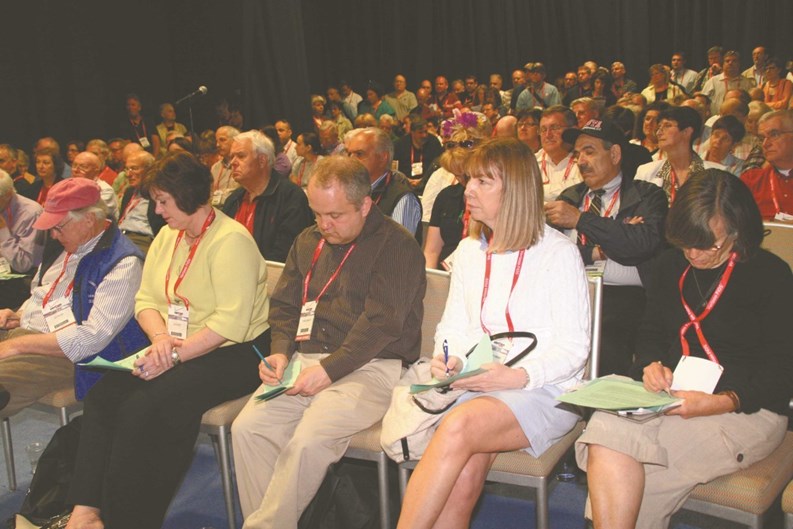Meet John Anderson. He is your friendly association board member. He doesn’t know much about being on a board. He simply wanted to help his community, and he’s very willing to learn. And then there’s Anne Davis. She has been a member of the board for a few years, but it’s been said that she doesn’t communicate very well with non-board residents, and still has a hard time understanding certain rules and regulations that the board must follow.
Board members like John and Anne are volunteers who don’t necessarily come to the job knowing everything they need to know in order to fulfill their role. They don’t miraculously learn new skills or gain knowledge just by serving on the board. Both new (like John) and incumbent (like Anne) members can benefit greatly from learning new skills and enhancing the administrative skills they already have.
Skill Sets
Before Anne and John even think about improving their skills, it's probably a good idea to identify what those skills are.
“Board members should bring a level of dedication and interest to the non-paying job,” says Michael Daniels,CPM, the chief operating officer of Cagan Management Group, Inc. in Skokie. “Sometimes they get roped into it and they don’t really want to, but it’s important that they know it’s not just a ceremonial position.”
Julie Cramer, an elected member of the Community Associations Volunteers Committee of the Community Associations Institute (CAI), agrees that getting roped into a board position is a common problem with new board members. “They ran, got elected, and now they aren't sure exactly what is expected of them,” she says. “What they don't realize is that they are now directors, and maybe officers, of a legal entity, not-for-profit corporation—and with that comes responsibility and clear duties.”
Fortunately, John has served on his daughter’s school PTA, so he is already familiar with how meetings are run, and he never felt that he was goaded into the decision to join his condo board.
Previous business skills can help with some of these board responsibilities. Anne used to run her own business before retiring from it several years ago, so she knows about accounts payable, accounts receivable, and the minutiae of day-to-day financials.
“The board is responsible for overseeing the operation of the association and protecting the assets of the community,” says Cramer. “They are also expected to solve problems, resolve conflict and foster good neighbor relations, so basic business skills, such as the ability to run a meeting, knowledge of accounting and financial statements, strategic and long term planning, preparation of contractor bid requests and evaluation, presentation skills, organization, and record keeping are all extremely helpful.”
What skills a board member needs also depends on what position they may be holding. “For example, ideally a treasurer is someone with an accounting or finance background,” says Armando Chacon, a real estate agent with Century 21 S.G.R., Inc. in Chicago and president of his own condominium association board. “As for a president, having previous leadership positions would potentially make someone qualified.”
Other skills for every board member to have would be the ability to interpret and abide by the associations bylaws, which are usually lengthy and heavy on the legalese. “Having a good understanding of how an association is governed is very important,” says Chacon.
In addition to readily applicable skills, the pros agree that people skills are also of great importance when it comes to association management. “Such skills as conflict resolution, consensus building, and interpersonal communication are so important,” says Cramer. “I would consider solid communication skills as the single most import characteristic of a good board member, be it written or verbal. Letters to homeowners must be clear, informative, accurate, and well written. Sometimes they must be tactful or persuasive. Good verbal skills are essential when dealing with the variety of issues and problems that arise with owners, as well as with external matters.”
Decision-making is another vital tool in the board member's kit. “I need people who can cut to the chase and be able to make decisions,” says Daniels. “So many things get dragged out, and you need to have people who can get them to move forward.”
At some properties, residents cannot become board members unless they’ve already gained some experience and built up some skills by serving on a committee. This is the requirement at several of Daniels’ buildings. “It works out nicely, because this way they have an understanding of how things work by coming meetings and making committee reports,” he says.
In his book, The Perfect Board, author Calvin K. Clemons, CAE, CMP, compares having someone work their way up in a board to how a major league baseball team’s farm system operates. “People work their way up in the organizations,” he writes. “As they perform successfully at each level and succeed, the person goes on to the next higher plateau of performance. Seldom does a rookie break into a starting lineup of a major league baseball team.”
Improve Your Skills
But why should John or Anne invest hours of time and legwork to improve their skills when serving on the board is only a volunteer position? Quite simply, “Anyone who wants to improve their skills will be a good board member,” says Daniels.
In addition, deeper knowledge and more nuanced understanding makes a board member's job much easier. “It will save them time, energy and frustration,” says Cramer. “I have sat at board meetings at which well-intentioned board members created an atmosphere of confusion, indecision, and lack of direction. An educated board member will find their job more fulfilling and satisfying and certainly less stressful as they gain knowledge, experience, and confidence.”
Cramer also says that education not only benefits the board member, but his or her association as well. “Consider the fiduciary duties that the board member takes on as a volunteer,” she says. “An educated board member is better prepared to understand the legal and financial responsibilities they have undertaken. The better these duties are carried out, the lesser the chance that the condo, co-op, or HOA will be subject to lawsuits, other violations, and even simple complaints.”
Unfortunately, John and Anne don’t really want to attend classes or seminars to improve their skills. They don’t know anyone who is going, and when they are not at meetings, they are busy with their own lives and responsibilities. Getting them there may need some persuading.
“It’s helpful for managers to accompany board members to community association conferences and seminars, especially the first time,” says Daniels. “They can help the board member navigate the process and feel more comfortable in what can be overwhelming for a new board member.”
During the budget preparation cycle, Cramer says managers should also encourage board members to build an educational expense into the budget. “Some owners may view it as an unnecessary expense but in the long run it will save the organization money and result in a better and smoothly-run association,” she says.
Outside Learning
There are many opportunities to take courses or seminars to improve skills. Often property management companies present seminars. Daniels offers seminars through his company on how to run a board meeting including the rules and procedures. “We’ll go through it with them,” says Daniels. “We’ll also run wine and cheese seminars on energy savings, green topics, and light bulbs and the good board members take advantage of it.”
National organizations, such as CAI, provide education and resources, such as website content, publications, classes, networking forums, and webinars all designed to fit a variety of needs, experience levels, budgets, and schedules.
Basic info on community associations is available through CAI for free or low cost at www.caionline.org. The website has additional resources for members. Membership for board members, homeowners and other community leaders is $124 per year, which includes access to free networking breakfasts and educational events, training sessions (the costs for which vary), webinars and more.
Local chapters of national organizations are also a great resource. The CAI Illinois (CAI-IL) chapter conducts free homeowner forums for members and non-members. It is an open format where a panel of professionals answer questions on topics such as legislation, budgets, reserves, foreclosures, election procedures, insurance, and landscaping.
Property management trade shows are more than just new product demonstrations. “Trade shows are meant for property managers and board members and they should take advantage of them,” says Daniels. “For example, there might be a roofing company showing you the latest product, but there are usually two or three good seminars on running a board meeting.”
The Chicagoland Cooperator’s first annual Condo, HOA & Co-op Expo will be held this fall on Wednesday, November 16 at the Navy Pier Convention Center in Chicago. Hundreds of exhibitors will showcase their wares and a series of free informative educational seminars will be provided for board members and industry professionals. For more information, go to www.chicagocondoexpo.com
The Internet also provides a great deal of information where you can learn what you need to know about being a board member. For example, Robert’s Rules of Order, which provides common rules and procedures for how board meetings should operate, can be found online and might give a better understanding of what should take place at the meeting (www.robertsrules.com).
And, of course, you can always catch the latest edition of The Chicagoland Cooperator, filled with information on how to be a great board member.
Lisa Iannucci is a New York-based freelance writer and author and a frequent contributor to The Chicagoland Cooperator.







Leave a Comment